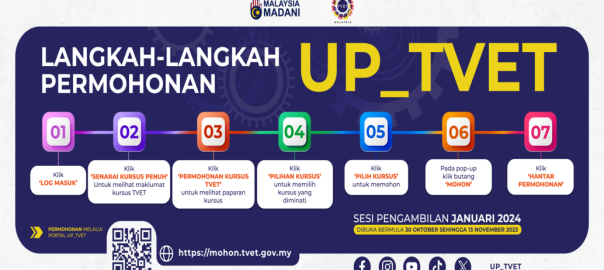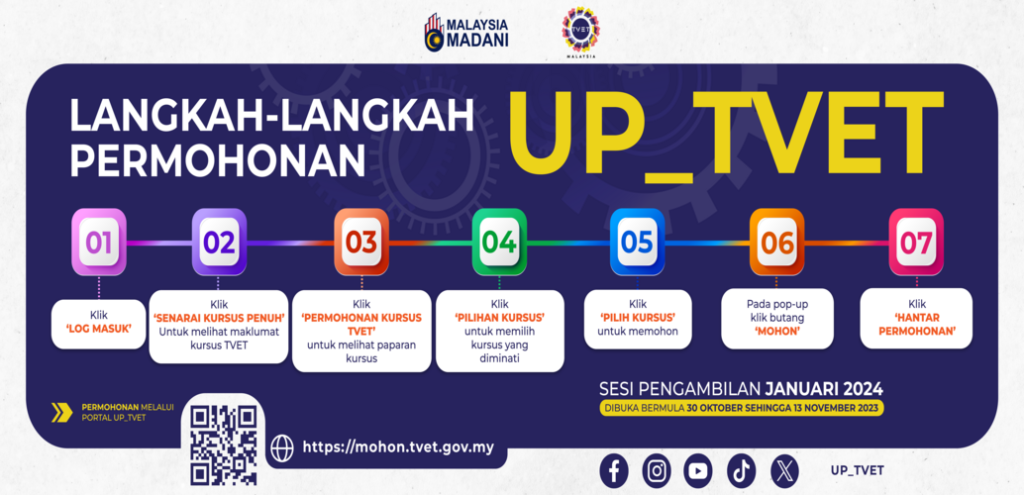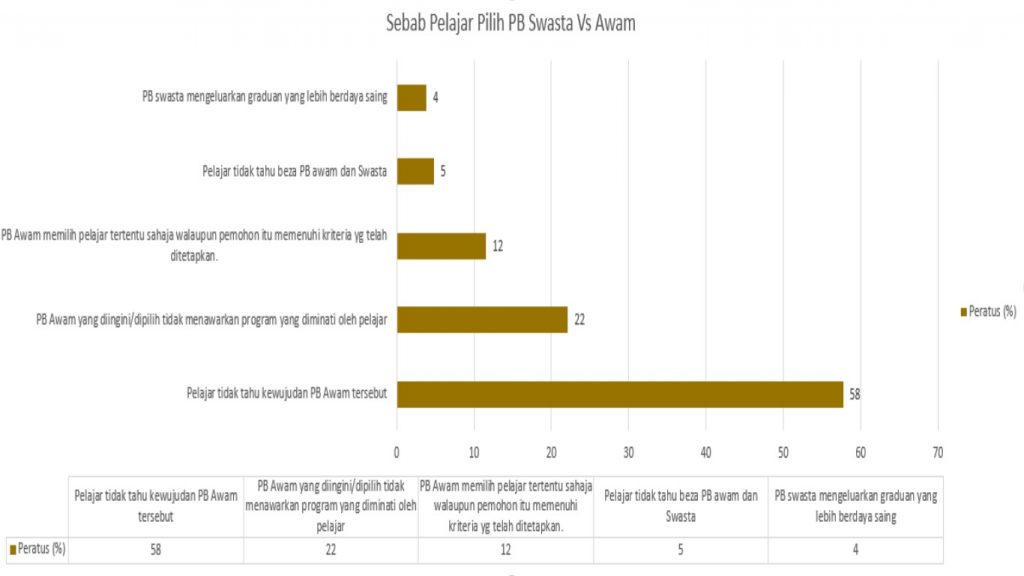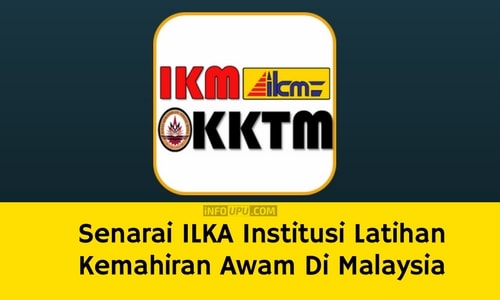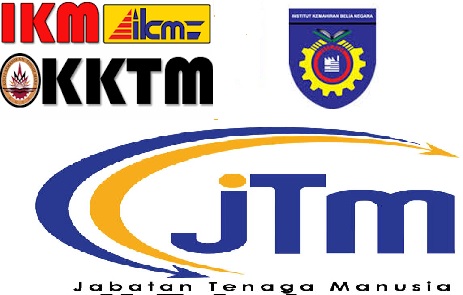PUTRAJAYA, 30 Oktober – Permohonan kemasukan ke 1,334 institusi Latihan Teknikal dan Vokasional (TVET) di seluruh negara akan mengalami perubahan besar dengan pelancaran portal Unit Pengambilan TVET (UP_TVET). Timbalan Perdana Menteri dan Pengerusi Jawatankuasa Majlis TVET Negara, Datuk Seri Ahmad Zahid Hamidi, mengumumkan bahawa langkah ini bertujuan untuk menyelaraskan permohonan, menghindari pertindihan, dan meningkatkan keberkesanan proses penerimaan peserta.
Menurut Datuk Seri Ahmad Zahid Hamidi, “Permohonan menggunakan portal Unit Pengambilan TVET ini akan memungkinkan peserta memilih institusi TVET dan kursus yang mereka minati dengan lebih teratur. Ini akan mengurangkan masalah pertindihan permohonan dan memastikan bahawa peserta mendapatkan kursus yang sesuai dengan minat dan keperluan mereka.”
Institusi TVET ini cuma merangkumi institut awam seperti INSTITUT LATIHAN PERINDUSTRIAN, PUSAT LATIHAN TEKNOLOGI TINGGI (ADTEC), INSTITUT KEMAHIRAN BELIA NEGARA, INSTITUT KEMAHIRAN TINGGI BELIA NEGARA, GIATMARA dan GERMAN-MALAYSIAN INSTITUTE (GMI).
Anda boleh cari mengikut bidang yang anda minati.
Selain dari penyelarasan permohonan, Jawatankuasa Kabinet Majlis TVET Negara juga telah menetapkan beberapa arahan penting untuk institusi TVET. Salah satunya adalah untuk menawarkan kursus berasaskan teknologi tinggi dan tenaga yang boleh diperbaharui. Ini bertujuan untuk memastikan peserta TVET dilatih dengan kemahiran yang relevan dengan pasaran tenaga kerja yang semakin berkembang, termasuk keperluan pelabur-pelabur asing.
Datuk Seri Ahmad Zahid Hamidi menekankan, “Dengan menawarkan kursus yang sesuai dengan permintaan pasaran, kita akan membantu pelabur-pelabur asing mendapatkan pekerja-pekerja yang mahir dan berkelayakan, yang akan memberi manfaat kepada syarikat-syarikat mereka.”
Beliau juga merujuk kepada hasrat Perdana Menteri, Datuk Seri Anwar Ibrahim, untuk mengembangkan industri berdasarkan teknologi tinggi dan bidang tenaga boleh diperbaharui. Ini dijangka akan mencipta lebih dari 3.5 juta peluang pekerjaan baharu menjelang tahun 2030.
Dalam usaha untuk menyelaraskan Dasar TVET Negara, Datuk Seri Ahmad Zahid Hamidi juga telah memberikan arahan kepada Sekretariat TVET Negara untuk menyusun pelan ‘road map’ yang akan menerjemahkan Dasar TVET Negara 1.0 hingga tahun 2030. Ini akan menjadi panduan penting bagi memastikan perkembangan dan pertumbuhan TVET di Malaysia.
Beliau menyimpulkan, “Kami percaya bahawa TVET adalah pilihan utama untuk pendidikan dan latihan bagi ramai individu. Kebolehpasaran dalam kalangan graduan TVET telah meningkat melebihi 92 peratus, menunjukkan keberkesanan pendidikan dan latihan yang diberikan. Kami akan terus mengukuhkan TVET sebagai pilihan utama bagi pelajar Malaysia, sambil terus memajukan pendidikan akademik.”
Alternatif: Institut/Kolej TVET swasta serta bidang yang mungkin tidak ditawarkan dalam portal UP_TVET
Sekiranya anda masih tak dapat cari bidang yang diminati, tidak suka dengan lokasi ataupun tidak memenuhi syarat kelayakan yang ditetapkan oleh institusi dalam portal yang disenarai dalam portal UP_TVET, anda boleh cuba cari institusi/olej kemahiran TVET swasta.
